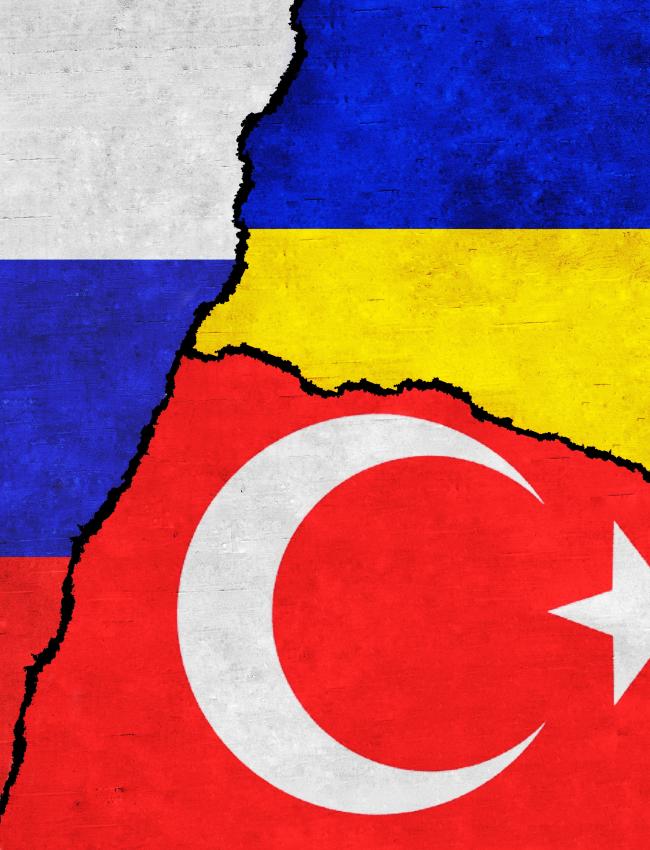As Russia’s war in Ukraine enters its ninth month, Turkey has emerged as one of the conflict’s most important external actors. With most global powers choosing sides, Ankara has managed to preserve ties with both Moscow and Kiev, positioning itself as a key mediator in ending the conflict.
But is peace really Turkey’s motivation, or is President Recep Tayyip Erdogan more interested in getting as much leverage over Russia as possible?
Russian President Vladimir Putin has repeatedly praised what he calls Turkish neutrality vis-à-vis the war. The irony, of course, is that while Ankara has kept lines of communication open with both sides, it’s far from neutral.
Turkey is not only supplying Ukraine with Bayraktar drones, but also with TRLG-230 precision-guided missiles. In October, Turkish shipyard RMK Marine even launched Ukraine’s first anti-submarine naval ship.
What’s more, Turkish drone maker Baykar is expected to complete a drone manufacturing plant in Ukraine in the next two years. Does that mean that Erdogan, Putin’s “dear friend,” received guarantees from the Kremlin that Russian forces will not attack the Turkish investment?
As self-defeating as that sounds for Russia, it wouldn’t be the first time that the two leaders made such an arrangement. They have a history of lucrative deals, from Syria and Libya to Armenia and Azerbaijan.
Recently, Erdogan confirmed that he supported the shipment of Russian grain to poor African countries. Coincidentally or not, the countries that Russia will send its grain to for free – Mali, Djibouti, Sudan and Somalia – are the very places where Turkey has been trying to increase its influence. Thus, from Erdogan’s perspective, Putin’s “goodwill gesture” will help Ankara achieve its own foreign policy aims.
After the Kerch Bridge explosions in October, which hindered Russia’s ability to resupply its forces in Crimea, the Kremlin withdrew from the Black Sea grain agreement, accusing Ukraine of using the “security corridor” to attack the Russian Black Sea fleet. However, one phone call with Erdogan was enough for Putin to change his mind and agree to allow Ukraine to export its grain via the Black Sea.
As a result, Turkey can now buy grain from both Ukraine and Russia at lower prices, which will greatly benefit Turkey’s inflation-hit economy.
Indeed, the extension of the grain deal positioned Turkey yet again as an important player in the conflict and suggested that Erdogan has significant leverage over Putin. But why?
As a result of Moscow’s international isolation, Turkey has become Russia’s major gateway to the world. Turkey remains the only member of the North Atlantic Treaty Organization that has not imposed sanctions on Russia – giving Putin an economic lifeline. It’s not surprising, then, that the Kremlin has turned a blind eye to Ankara’s actions in Ukraine and, more recently, in Syria.
After Turkey launched air strikes in northern Syria last week, Erdogan went out of his way to stress that he didn’t notify Putin in advance, despite Russia having its own military presence in Syria. Erdogan is well aware that Moscow is unable to help either the Kurdish-dominated People’s Defense Units in northern Syria – Ankara’s major target – or President Bashar al-Assad’s Syrian Arab Army.
Similarly, after Turkey recently decided to tighten rules on oil tankers that transit the Bosporus and Dardanelles straits, a move that could restrict flows of Russian oil, Moscow yet again had to bury its head in the sand.
